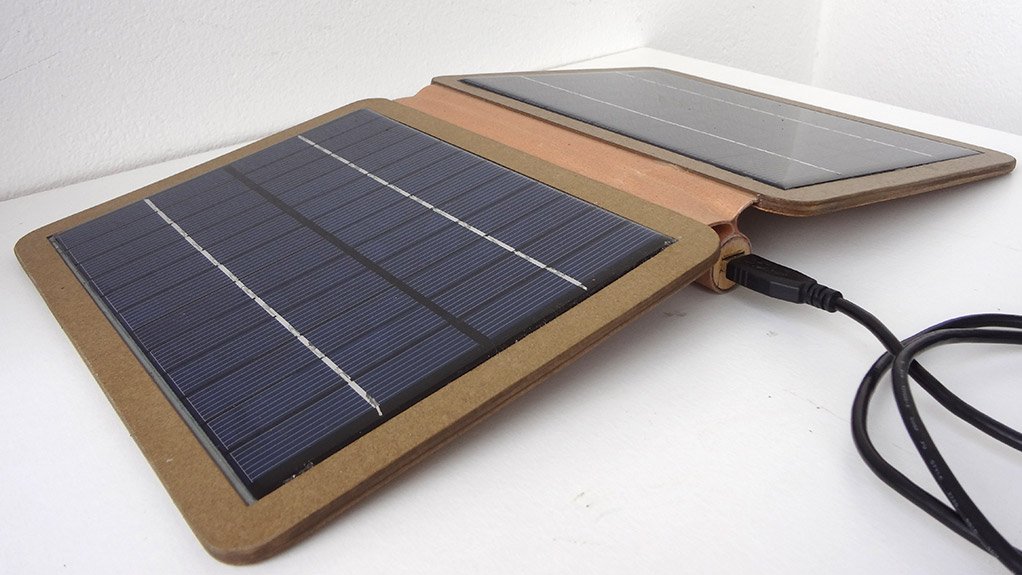
SOLANOVA PORTABLE CHARGERThe 10 W portable solar charger charges any mobile device that has a USB port
A group of postgraduate entrepreneurship students of the University of Cape Town (UCT), in the Western Cape, has designed and built a portable solar charger, the SolaNova, which can charge any mobile device, says postgraduate student and group member Abdul Issufo.
The portable charger weighs 800 g and has two solar panels that are enclosed in a jacket of recycled leather, cardboard and cork. The charger is 245 mm × 235 mm × 22 mm in size. It costs R700 and provides charge through the Universal Serial Bus (USB) ports of devices.
“The materials we use to protect the charger are local materials, but the solar panels were imported from China. “We have been developing the product for six months and released it earlier this month at UCT’s main campus,” he says.
The charger does not include batteries, but provides a direct charge from sunlight.
“The SolaNova starts charging as soon as it is exposed to the sun; there is no waiting around for the panels to develop sufficient energy for charging,” says team member Kelly Norton.
“Tests that have been carried out found that the product’s rate of charge is of a similar effi- ciency to charging using a wall plug,” Issufo says.
The device has garnered interest from a few retailers and local markets, including the Houtbaai market and the Old Biscuit Mill. However, the group, known as Eco-Studio, is currently selling the product as an online retail product.
The website, www.ecostudio.co.za, provides information about the SolaNova portable charger and a background to the business.
The group does not have a support network for the product and has opted to replace any faulty devices that are returned. The device has been tested to ensure that there are no technical difficulties.
The project is part of the postgraduate Diploma in Entrepreneurship, which requires that students form and manage a small busi-ness that will be evaluated by a board of four lecturers and business directors at the end of the year.
The main aim of the postgraduate course is to design and develop a product that is unique to South Africa and incorporates the principles of the triple bottom line, namely sustainability towards people, the planet and profits.
The Eco-Studio team comprises seven members who have all completed different undergraduate degrees in engineering, com-merce, environmental science, economics, marketing and the humanities.
Many people have shown sigificant interest in the Eco-Studio and the group hopes to pursue its business into next year.